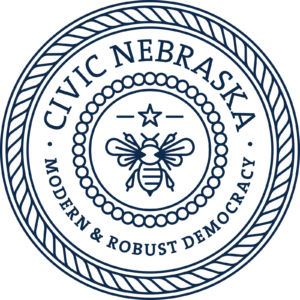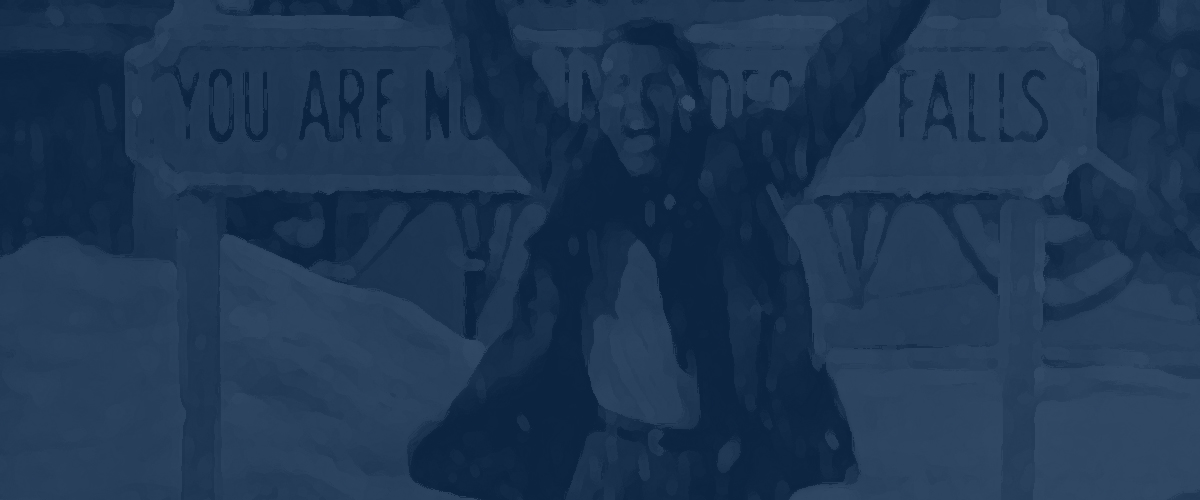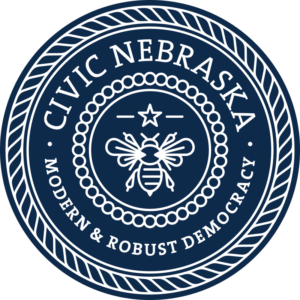Christmas movies might not immediately come to mind when thinking about democracy. Still, more than a few films explore themes of community, justice, fairness, and civic responsibility, the core elements of democracy, through the lens of holiday spirit. Here are six of our favorites.
1. It's a Wonderful Life (1946)
George Bailey, a kind and selfless man, sacrifices his dreams to help others in his small town of Bedford Falls. On Christmas Eve, he contemplates suicide but is shown by an angel how much worse the world would be without him.
How does It’s a Wonderful Life reflect democratic values?
Community responsibility. George’s life embodies the principle that individuals working together can build a stronger, more equitable society. He protects Bedford Falls from being overrun by the greed and monopolistic control of Mr. Potter, a stand-in for unchecked corporate power threatening democratic fairness.
Civic duty. George’s stewardship of the Bailey Building and Loan institution demonstrates the importance of local institutions in empowering ordinary people, such as helping them achieve homeownership, a fundamental piece of the American Dream and democratic equity.
Inspiration for civic action. George’s realization that his contributions matter reinforces the democratic ideal that every individual’s actions shape the community and the broader society, no matter how small.
2. A Miracle on 34th St. (1947)
Kris Kringle, who claims to be Santa Claus, works as a department store Santa in New York City. When his sanity is questioned, his case goes to court to determine if he is who he says he is.
How does Miracle on 34th Street reflect democratic values?
Rule of law. The trial of Kris Kringle underscores the judiciary’s role in protecting individual rights and determining the truth fairly and impartially. This mirrors the importance of the legal system in a democratic society.
Public will. The film highlights how public opinion and collective belief can influence outcomes. The mass support for Kris reflects the power of civic engagement in shaping a just society.
Equity and inclusion. The story asks audiences to believe in something larger than themselves and to embrace differences, aligning with the democratic value of fostering an inclusive society where everyone matters.
3. Scrooged (1988)
In this late-’80s retelling of A Christmas Carol, the cynical, selfish TV executive Frank Cross is visited by three Christmas spirits who force him to confront his greed and disregard for others, transforming him into a caring, community-minded leader.
How does Scrooged reflect democratic values?
Transformation through awareness. Frank’s journey illustrates the democratic principle that reflection and learning make change possible. His realization that his actions affect the broader community mirrors the process of civic enlightenment that can lead to societal improvements.
The collective good. The film’s resolution demonstrates that prioritizing community well-being over individual greed results in a more just and prosperous society.
Empathy and representation. Frank learns to see and value the struggles of ordinary people, recognizing their dignity and humanity, similar to how a democracy functions best when leaders are attuned to the needs of all citizens.
4. The Man Who Invented Christmas (2017)
This biographical drama follows Charles Dickens as he writes the aforementioned A Christmas Carol, battling personal and professional challenges while creating a story that addresses poverty, injustice, and generosity.
How does The Man Who Invented Christmas reflect democratic values?
Social justice. The film emphasizes Dickens’s desire to highlight systemic inequalities and the responsibility of those in power to address them. These themes resonate with democratic ideals of equity and accountability.
Moral leadership. Dickens uses storytelling as a tool to inspire moral responsibility among his audience, much like how democracy relies on informed and engaged citizens to address societal challenges.
Universal humanity. The film’s focus on compassion, generosity, and shared human dignity reflects the democratic principle of valuing each individual’s worth and potential.
5. A Charlie Brown Christmas (1965)
OK, it’s not technically a movie, but this animated special is so embedded in American culture that we had to include it. Disillusioned by the commercialization of Christmas, Charlie Brown seeks a deeper meaning for the holiday. With help from his friends, he learns about the importance of humility, community, and shared values.
How does A Charlie Brown Christmas reflect democratic values?
Rejecting materialism. The prime-time special critiques excessive consumerism, which can erode the values of community and collective responsibility central to democracy.
Community effort. When the gang rallies around Charlie Brown’s struggling tree, it symbolizes how collaboration and mutual support can overcome challenges, much like a functioning democracy depends on collective action.
Core values. Charlie Brown’s search for authenticity parallels the democratic ideal of staying true to foundational principles like equality, fairness, and justice, even in the face of societal distractions.
6. Joyeux Noël (2005)
This historical drama is based on the true story of the 1914 Christmas Truce during World War I, when soldiers on opposing sides laid down their arms to celebrate the holiday together.
How does Joyeux Noël reflect democratic values?
Common humanity. The film highlights how shared values and empathy can transcend political and national divisions, embodying the democratic principle of prioritizing the common good over conflict.
Bottom-up decision-making. The truce was initiated by the soldiers themselves, showing the power of individuals to create peace and understanding from the ground up, much like grassroots movements in a democracy.
Peacebuilding. The ceasefire, though temporary, underscores the importance of dialogue and compromise, two essential components of democratic governance.
Honorable mentions
The Polar Express (2004)
Democracy requires trust in institutions and the active participation of its citizens. The film’s message about belief can be viewed as a metaphor for faith in democratic processes. Also, the diverse children onboard symbolize the importance of inclusivity in a multi-racial, multi-ethnic, multi-faith democracy.
How the Grinch Stole Christmas (1966, 2000)
The Grinch’s transformation mirrors the democratic ideal that people (and systems, natch) can change for the better. Meanwhile, the Whos of Whoville demonstrate resilience and unity, showing the power of community and shared purpose. That’s a core tenet of the democratic way of life.


